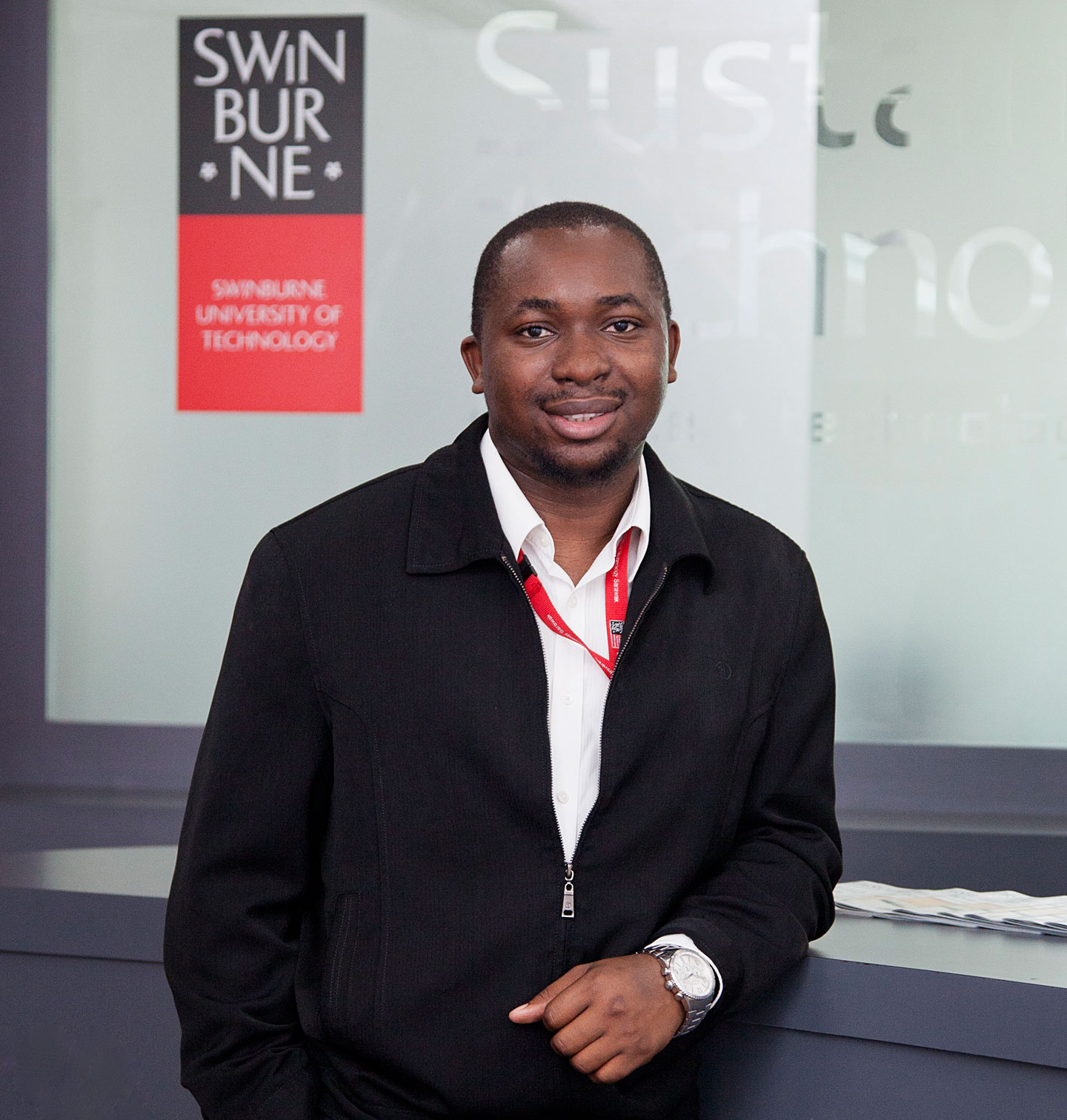KUCHING – A student pursuing a master’s degree at Swinburne University of Technology Sarawak Campus won the best paper award at the recent Borneo Research Education Conference.
Themed Developing as a researcher by building research skills, the event was held at the Samarahan campus of Universiti Teknologi MARA (UiTM).
The paper by Armstrong Ighodalo Omoregie entitled Cross-disciplinary research: developing biocement applications using locally isolated ureolytic bacteria discusses the collaborative efforts between the science and civil engineering departments towards developing biocement materials for soil properties enhancement.
The Nigerian postgraduate student is currently working on an industry funded project which focuses on the development of bio-soils via microbial induced calcite precipitation technique, utilizing microbial enzyme called urease to produce calcium carbonate minerals, which promote the binding of loose soil particles.
“Construction microbial biotechnology is a new area of science and engineering that makes use of microbially induced calcite precipitation, a type of biocementation technique to improve the geotechnical properties of soil,” said Armstrong.
An example for the application of microbial biocementation is in ground improvement projects, where soil strength at marginal construction sites can be vastly improved. Microbial cementation is a cost-effective and sustainable ground improvement technique.
Other advantages of the technique include the reduction of the carbon footprint since it is more environmentally friendly compared to Portland cement commonly used in the construction industry.
“Little is known about the diversity of bacteria inhabiting Sarawak’s limestone caves. But through my research, we discovered that some of the bacteria from these caves can actually be of better quality than those from other parts of the world,” he said.
The 29-year-old, who aspires to be one of Nigeria’s successful biotechnologists, said the desire to become a scientific researcher and his focus on microbial enzymes came naturally.
“My research interest in industrially relevant microorganisms started when I was an undergraduate student embarking on my final year research project,” said Armstrong, who earned a biotechnology degree from the Australian branch campus in 2013.
“I enjoyed solving scientific problems during my project and developed a specific interest in ureolytic microbes because of the cross-disciplinary research prospects.”
The annual Borneo Research Education Conference, first held in 2013, is aimed to help strengthen research culture within higher learning institutions.
It is convened by UiTM Sarawak, Swinburne Sarawak, Universiti Malaysia Sabah, Curtin University Malaysia, and Universiti Malaysia Sarawak to enhance research education in the Borneo region and beyond.


